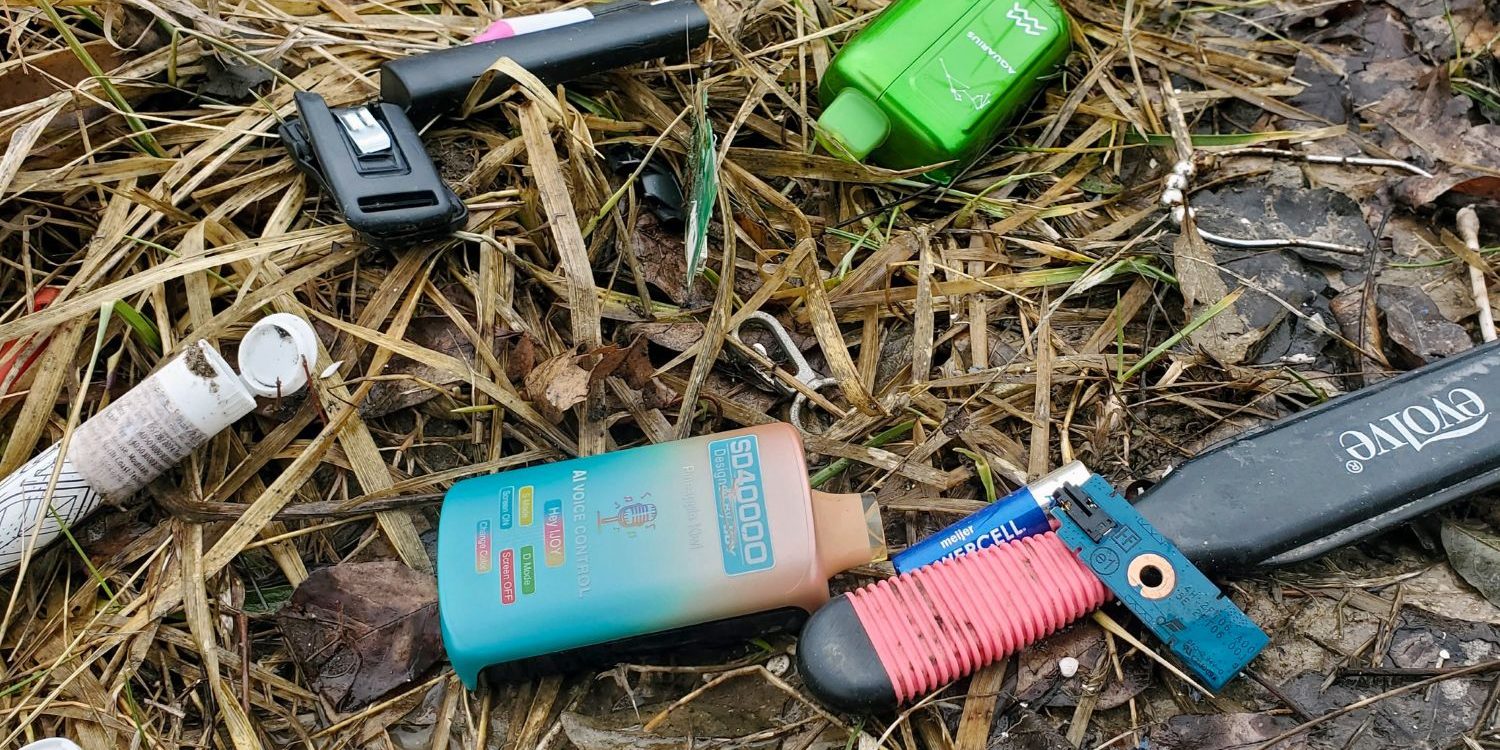The disposable vape ban: A sign of positive ecological change?
On 1 June, the long-awaited disposable vape ban came into effect in the UK, with the aim of reducing their environmental impact and detrimental effect on public health. The ban was introduced as a result of the “devastating impact on our environment and biodiversity” of disposable vape products, as well as to reduce and discourage nicotine use in young people.
Due to their plastic casing and lithium-ion batteries, major disposable brands such as Lost Mary and Elf Bar have “poor recyclability“. There are still major concerns regarding the long-term effects of these products on the environment, despite the introduction of the ban. New sales of these products may no longer be possible, but this does not mean that people already in possession of vapes will not dispose of them irresponsibly, or that they will not end up in landfill or on our streets. MSN estimates that each of the 8.2 million vape devices discarded each week in the UK – 13 per second – would take approximately 1,000 years to naturally decay.
Irresponsible disposal of vape products can result in increased litter problems in urban areas, and can be destructive to wildlife
Environmentalist Aileen McClenaghan gives the example of 17th-century clay pipes: “I have a collection of clay pipes [found along the coast] that would have been popular around the 17th and 18th centuries. They were the disposable vapes of their day […] If we’re still finding them today, then just think – we will be finding disposable vapes long, long into the future.”
Disposable vapes have made up a large amount of litter removed in recent years, according to LQ BID’s finance and contracts manager, Charlotte Irvine. Irresponsible disposal of vape products can result in increased litter problems in urban areas and can be destructive to wildlife due to the length of time it would take for a single vape to decompose. While the disposable vape ban is a welcome step in the right direction, there is no doubt that the ecological effects of these products will be felt for years.
Environmental impact is not the only reason for the recent disposable vape ban – the government aims to reduce vaping among young people, which has risen to approximately 26.5% of 16–24 year-olds in recent years. Their various flavours and colours, as well as their affordability, make disposable vapes appealing and popular among young people. The ban may decrease impulse buying of such products, though this is not necessarily the case for everyone. Ana, aged 26, told ITV News: “No, it will not deter me from vaping […] It just makes it more inconvenient. I’m addicted to nicotine, so I will continue to use vapes.”
It cannot be ignored that we are celebrating the enforcement of this ban despite the UK Government’s failure to tackle broader ecological issues, such as fast fashion and industrial pollution
Ana also suggests that young people will simply invest in refillable vape products, which are more costly to purchase initially but are cheap to charge and refill. This shift to refillable alternatives will have further environmental costs, perhaps counteracting some of the impact of the ban. Other vape products are still packaged with bright colours and sold with appealing flavours to attract young people, which the government has pledged to put a stop to with the Tobacco and Vapes Bill.
It cannot be ignored that we are celebrating the enforcement of this ban despite the UK Government’s failure to tackle broader ecological issues, such as fast fashion and industrial pollution. The ban could appear to some as greenwashing, a tactic to distract from the more pressing environmental changes needed. Without simultaneous endeavours to tackle major systemic problems, the Government’s ban may appear more performative than intended.
There is no doubt that the disposable vape ban is a positive step forward regarding nicotine addiction in young people and tackling waste, but there is much more that needs to be done. Irreversible damage has already been done, and will continue to do so in the future with the sustained sale of refillable vape products. However, the ban may act as a springboard for wider environmental policy endeavours. If we are to see true benefits, it must be more than a performative governmental gesture – it must be the starting line for more ambitious environmental progress.

Comments